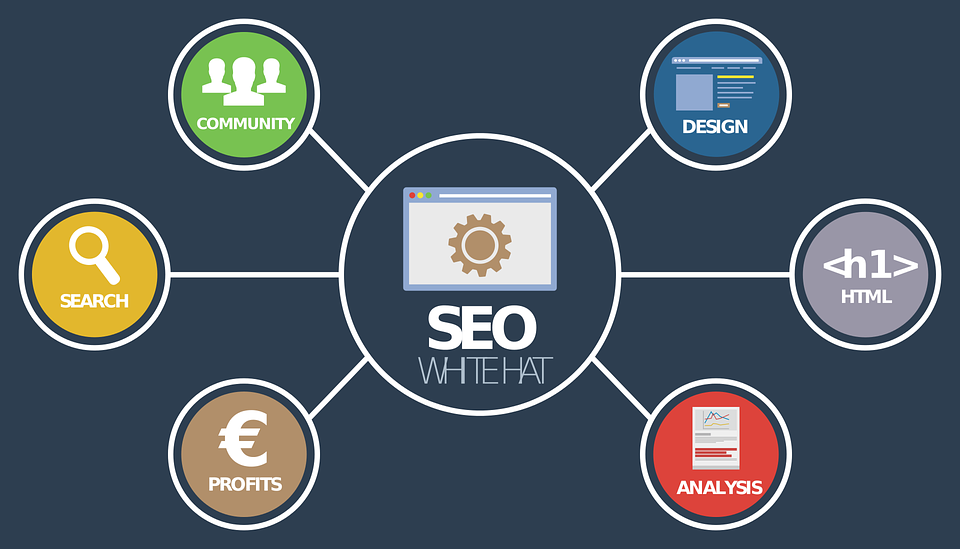Understanding SEO in Digital Marketing: How It Works and Why It Matters

SEO means Search Engine Optimization. SEO in Digital marketing is a powerful strategy that drives organic traffic by optimizing your website to rank higher on search engine results pages (SERPs). It is the process of improving the quality and quantity of website traffic to a website or a web page from search engines. SEO targets unpaid traffic known as organic results, rather than direct traffic or paid traffic. Unpaid traffic may originate from different kinds of searches, including image search, video search, academic search, news search, and industry-specific vertical search engines.
The Importance of SEO in Digital Marketing
The internet is the primary source of information for millions of people globally, making it essential for businesses to ensure their websites are easily discoverable. Without SEO in digital marketing, even the best products or services can remain hidden, buried under pages of search results. By implementing SEO, businesses can increase their chances of appearing on the first page of Google, where most users click.
The benefits of SEO in digital marketing are far-reaching:
- Increased Visibility: Websites that rank higher on search engines receive more organic traffic.
- Cost-Effective: Unlike paid ads, organic traffic is free, providing businesses with a sustainable long-term strategy.
- Brand Credibility: High search engine rankings improve a website’s trustworthiness.
- Better User Experience: SEO encourages the optimization of website design, speed, and usability, which improves overall user experience.
Key Pillars of SEO in Digital Marketing
- On-Page SEO:
On-page SEO refers to the elements that can be directly controlled on your website. This includes optimizing title tags, meta descriptions, headers, and content. By aligning your content with the search intent of users, you increase the likelihood of ranking higher in search results.
Effective on-page SEO also involves
- Using target keywords naturally throughout the content.
- Creating compelling and informative content that answers users’ questions.
- Ensuring proper internal linking and site structure.
On-page SEO is crucial because it provides search engines with clear signals about your content’s relevance, helping improve rankings.
- Off-Page SEO:
Off-page SEO focuses on activities outside of your website that influence your rankings. The primary strategy here is building high-quality backlinks, which act as endorsements for your content. Backlinks from authoritative sites signal to search engines that your content is trustworthy and valuable.
Off-page SEO also involves:
- Building relationships with industry influencers.
- Promoting content across social media platforms.
- Getting listed in reputable business directories.
The more quality backlinks you have, the better your chances of ranking higher in search results.
- Technical SEO:
Technical SEO ensures that your website is optimized for search engines at a structural level. It focuses on improving the backend elements of your website, such as:
- Site Speed: Faster loading times improve both user experience and search rankings.
- Mobile Optimization: With mobile traffic on the rise, mobile-friendly websites are essential.
- URL Structure: Clean, descriptive URLs improve search engine understanding.
- Crawlability & Indexability: Ensuring that search engines can access and index your site properly.
Technical SEO is critical because search engines prioritize websites that offer the best user experience. If your site is slow, difficult to navigate, or full of broken links, you risk losing both traffic and rankings.
- Local SEO:
Local SEO is vital for businesses targeting customers in specific geographic locations. By optimizing your website for local search queries, you can ensure that your business appears in local search results, which is particularly important for brick-and-mortar businesses.
Local SEO tactics include:
- Optimizing your Google My Business profile.
- Using location-based keywords.
- Encouraging local customer reviews.
- Building local backlinks.
Local SEO can significantly improve your visibility and help attract customers from nearby areas.
- Content SEO:
Quality content is at the heart of any successful SEO strategy. Content SEO focuses on creating valuable, well-researched, and engaging content that meets the needs of your target audience. The key to content SEO is to provide answers to user queries and deliver high-quality, informative content.
Effective content SEO involves:
- Researching relevant keywords and integrating them naturally into your content.
- Creating long-form content that covers topics comprehensively.
- Optimizing headlines, meta tags, and images to improve search engine rankings.
Content that answers user questions and provides genuine value is favored by search engines like Google, making content SEO an essential component of any digital marketing strategy.
How Search Engines Work
Google processes billions of searches every day, and SEO is about ensuring your content ranks among the top results. When a user enters a search query, Google uses complex algorithms to scan its index of web pages and ranks them based on factors like relevance, quality, and authority.
Search engines use algorithms to:
- Crawl: Discover new content and pages on the internet.
- Index: Store and organize content.
- Rank: Rank pages based on relevance to a user’s search query.
SEO in digital marketing is essentially about optimizing your website to meet the criteria set by search engines, ensuring that it ranks higher and is visible to potential customers.
The Role of SEO in Digital Marketing Strategy
The primary goal of SEO is to drive organic traffic to your website by improving your position in search engine rankings. While paid search campaigns like Google Ads can provide immediate traffic, organic search results are more sustainable and often deliver better long-term results.
Key benefits of SEO in digital marketing include:
- Cost Savings: Organic traffic is free, unlike paid advertisements.
- Targeted Traffic: SEO attracts users who are actively searching for your products or services, increasing the likelihood of conversions.
- Brand Authority: Websites ranking on the first page of Google are perceived as more trustworthy and credible.
In addition to SEO, digital marketing strategies such as social media marketing, email marketing, and paid ads can complement your efforts to boost visibility and engage with potential customers.
Measuring SEO Success
To measure the success of your SEO efforts, it’s essential to track key performance indicators (KPIs), such as:
- Organic Traffic: The number of visitors coming from search engines.
- Keyword Rankings: The position of your targeted keywords in search results.
- Bounce Rate: The percentage of visitors who leave after viewing only one page.
- Conversion Rate: The percentage of visitors who take the desired action, such as making a purchase or filling out a contact form.
By monitoring these metrics, you can assess the effectiveness of your SEO strategy and make necessary adjustments to improve results.
The Future of SEO in Digital Marketing
SEO is a constantly evolving field, with search engines regularly updating their algorithms to improve the user experience. As AI and machine learning become more integrated into search engines, SEO will continue to evolve. Staying updated with the latest trends and best practices is crucial for businesses to maintain their online presence and rankings.
In the future, voice search, artificial intelligence (AI), and semantic search will play an even larger role in how SEO in digital marketing is conducted. Businesses that embrace these changes and adapt their SEO strategies accordingly will be better positioned for success.

How do Search Engine works?
The term “search engine” is synonymous with Google, which has about 83% of the global search engine market. Because Google is the dominant search engine, SEO typically revolves around what works best for Google. It’s useful to have a clear understanding of how Google works and why.
When a search query is entered into a search engine by a user, all of the pages which are deemed to be relevant are identified from the index and an algorithm is used to hierarchically rank the relevant pages into a set of results. The algorithms used to rank the most relevant results differ for each search engine.

The Role of SEO in Digital Marketing
The goal of SEO is to raise your ranking in organic search results. There are different practices for optimizing AdWords, shopping, and local results.
Considering that Google processes billions of search queries daily, organic search results are a very large slice of a very large pie. And while there is some up-front and ongoing investment required to secure and maintain organic rankings, every click that sends traffic to your website is completely free.
The best way to get started with SEO is conducting keyword research.







